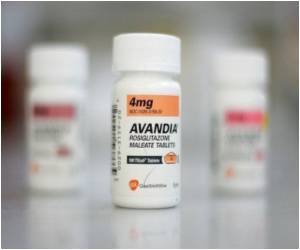A BMJ investigation into the top-selling diabetes drug rosiglitazone (Avandia) raises concerns about its safety and the whole system by which drugs are evaluated, regulated around the world.

The investigation reveals that in July the Commission on Human Medicines advised the MHRA to withdraw the drug as the “risks of rosiglitazone outweigh its benefits and that it no longer has a place on the UK market”.
In light of these concerns, doctors are also advising that no new patients should be started on rosiglitazone, and patients already taking it should be reviewed and alternative treatments considered. Those at higher risk of heart disease should be advised to stop taking the drug.
Rosiglitazone, manufactured by Glaxo SmithKline (GSK) was approved by the US Food and Drug Administration (FDA) in 1999 and by the European Medicines Agency (EMA) in 2000 to help lower blood sugar levels in patients with type 2 diabetes.
Since its approval, several studies have suggested that rosiglitazone may lead to a small overall increase in the risk of heart attacks, but in July an FDA scientific advisory panel recommended that it was safe enough to stay on the market.
In her report, Dr Deborah Cohen investigations editor of the BMJ, obtained documents under the Freedom of Information Act that note a paucity of evidence during the European approval process and outline concerns from some panel members about the long term risks and benefits of rosiglitazone. Other experts have since remarked on the poor evidence base and lack of long term data on cardiovascular safety.
Advertisement
Pressures on regulatory agencies by diabetologists to approve rosiglitazone, and failures by the agencies to act swiftly on emerging safety information are also highlighted in the report.
Professor Nick Freemantle at the University of Birmingham, calls for an overhaul in the standards of regulatory trials to minimise the risk of a similar situation occurring in other clinical areas in the future. “In order to learn from our mistakes, we must improve the quality of safety data from clinical trials on all new health care interventions, not just antidiabetic drugs,” he says.
Professor John S.Yudkin of University College London believes doctors must focus on what matters to patients. “Ten years after the release of rosiglitazone, we still cannot accurately quantify the harm to which we were exposing our patients,” he says. He admits that some of the blame lies with clinicians for not insisting on better proof of long-term benefit, and adds: “We need to be absolutely certain that our long term treatments for type 2 diabetes are not causing the very harm they are meant to prevent. And if the regulatory bodies do not insist on clear evidence of greater benefit than harm, they are failing in their basic purpose.”
Source-BMJ










